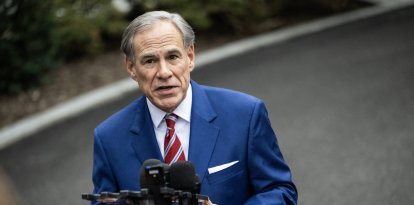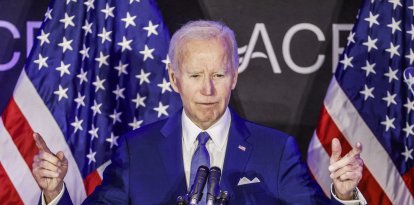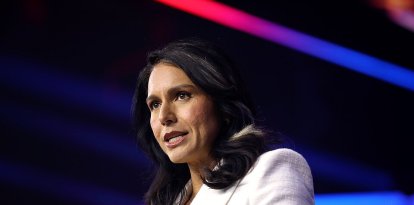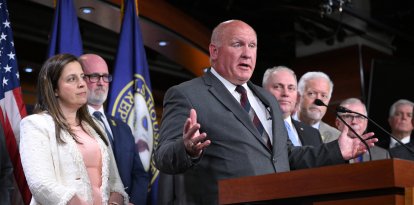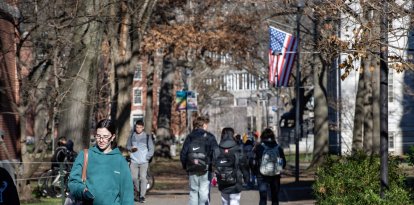Arab voters turned their backs on Harris: Defeat in Dearborn and Michigan
For the first time since the election of President Bush, the Muslim community preferred a Republican candidate to a Democrat.

Islamic center in Dearborn, Mich., during the election campaign.
Kamala Harris has disappointed the country's Arab and Muslim voters. For the first time in more than 20 years, a Republican candidate, Donald Trump, has achieved numbers above his opponent among this voter base. The case of the city of Dearborn, Mich., the only Arab-majority city in the country, is a reflection of this unexpected shift in the vote of a minority that, based on the narrative, does not support Trump.
There are no exit polls that offer rigorous data about the Muslim and Arab vote in the 2024 election. The Council on American Islamic Relations (CAIR) does estimate that only 20% of Muslim voters supported Harris. This figure contrasts with the estimate of 65%-70% who voted for President Joe Biden in 2020. Trump, instead, rose to about 22% among these voters.
Harris with no public support
The electoral outcome of this community could have been predicted for months. The war in the Gaza Strip became a headache for the Biden-Harris administration during the last year, caught between a rock and a hard place by an electorate that demanded more forcefulness in condemning Hamas while also holding it responsible for Palestinian casualties in the conflict.
It was no longer just in the country's progressive universities that it was clear that Gaza would be the rock in Harris' shoe. The mainstream PAC representing Arab American interests not only refused to endorse her in the presidential election, but urged the community to vote for neither Harris nor Trump.
Abdullah Hammoud, mayor of the city of Dearborn, where 55% of the population is Muslim, also did not welcome Harris during her tour of the swing state of Michigan.
In Michigan, Trump at least garnered somewhat more success during the campaign, which foreshadowed his overtaking Harris in the Arab-Muslim segment of the population. In the final days of the campaign, Trump reached out to the state's Arab voters by pledging to end the conflict in Gaza and other foreign wars, a message that resonated with many. In Hamtramck, Mich., near Dearborn, Mayor Amer Ghalib, of Yemeni descent, publicly endorsed him.
Alternative candidates: The other winners
Although Donald Trump outperformed Kamala Harris among the Muslim community, he still did not get a result even close to 50%. This was the case for the independent candidate, Jill Stein.
Calls by community leaders not to support either of the two main candidates had a good effect among Muslims. According to CAIR data, nationally, 53.2% of Muslims voted for Stein, with an 86% turnout. In Michigan, she polled 6 points better, with even higher turnout.
This trend did not hold in Dearborn. There, according to unofficial data collected by Politico, Trump polled highest, with 42%, while Harris got 36%, down 33 percentage points from when Biden won Dearborn in 2020. Green Party candidate Jill Stein got 18%.
Trump's result, which fails to surpass Bush's in his first election, was due to a growth in the southern and eastern areas of the city, where most of the Arab-Muslim community is concentrated. According to this same unofficial data, Harris obtained only 13% of this part, while Trump got 51%.
RECOMMENDATION

